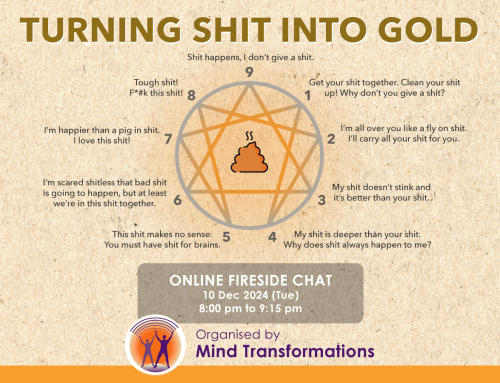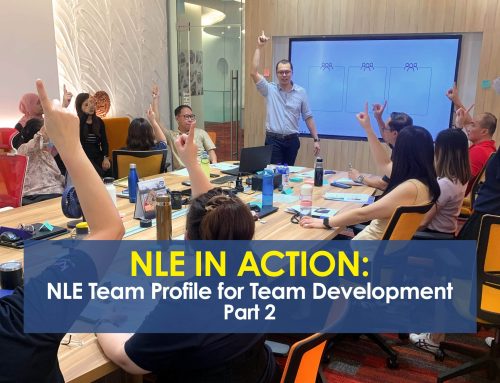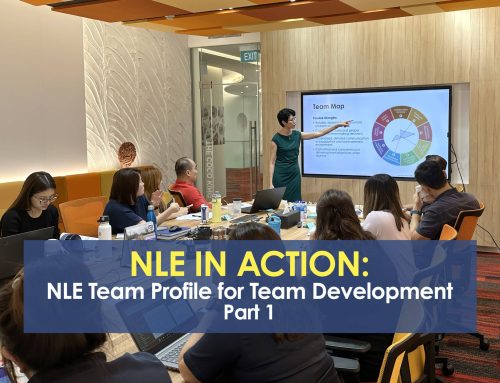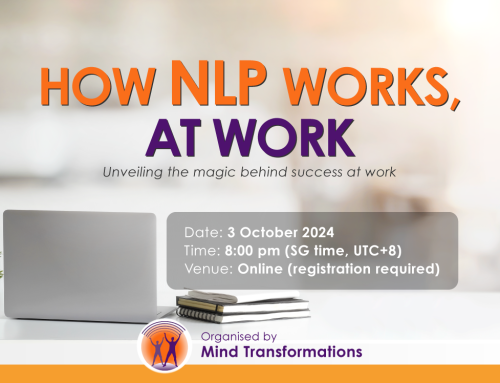The NLP Master Practitioner course is considered a "Paradigm-Shift" by many graduates.
This article describes the context and design considerations of the updated 2024 release of the Master Practitioner programme.

Why NLP is "Opportunely Critical" in the Age of VUCA
When we study human evolution, we can clearly see that when our external world changes drastically, most of us start to change --subconsciously or consciously. Evolutionarily speaking, nature and society will eventually de-select those who resist or are incapable of change. They will become irrelevant and redundant, eventually fading away.
The external chaotic changes we see and experience today are multi-systemic, involving climate, geopolitics, acceleration in AI, biological (pandemics) and a seismic shift in human values. These hyper-connected changes impact how we live, work, socialise and transact economically¹.The change processes we focus on in the NLP Master Practitioner Course is our "internal world" -- evolving our nervous system to thrive in the age of Volatility, Uncertainty, Complexity and Ambiguity (VUCA²).
Identifying VUCA-Fit Skills & Competencies
Scientists have continually been surprised by our brain's neuroplasticity³, so the question is not how much our nervous system can stretch, but what does it need to stretch to? What kind of knowledge and skills do we need to develop and stretch to thrive in the age of VUCA? We looked at some of the notable studies so far:
Most of the knowledge and skills expounded in the studies came from observing, surveying, and interviewing organisations performing well between 2017 and 2022. The different studies expounded many similar and some different skills, but they can be summed up with a more appropriate term called meta-competencies. These are "softer and overarching" competencies, each encompassing several skills relevant to a wide range of work settings. We have phrased these meta-competencies unconventionally so that they are not limited by older economic and educational narratives.
Using the meta-competency concept as a framework, and taking a meta-analytic approach, my research has distilled the above studies into six meta-competencies that we need to develop and stretch into to thrive in this VUCA age:
Six Meta Competencies
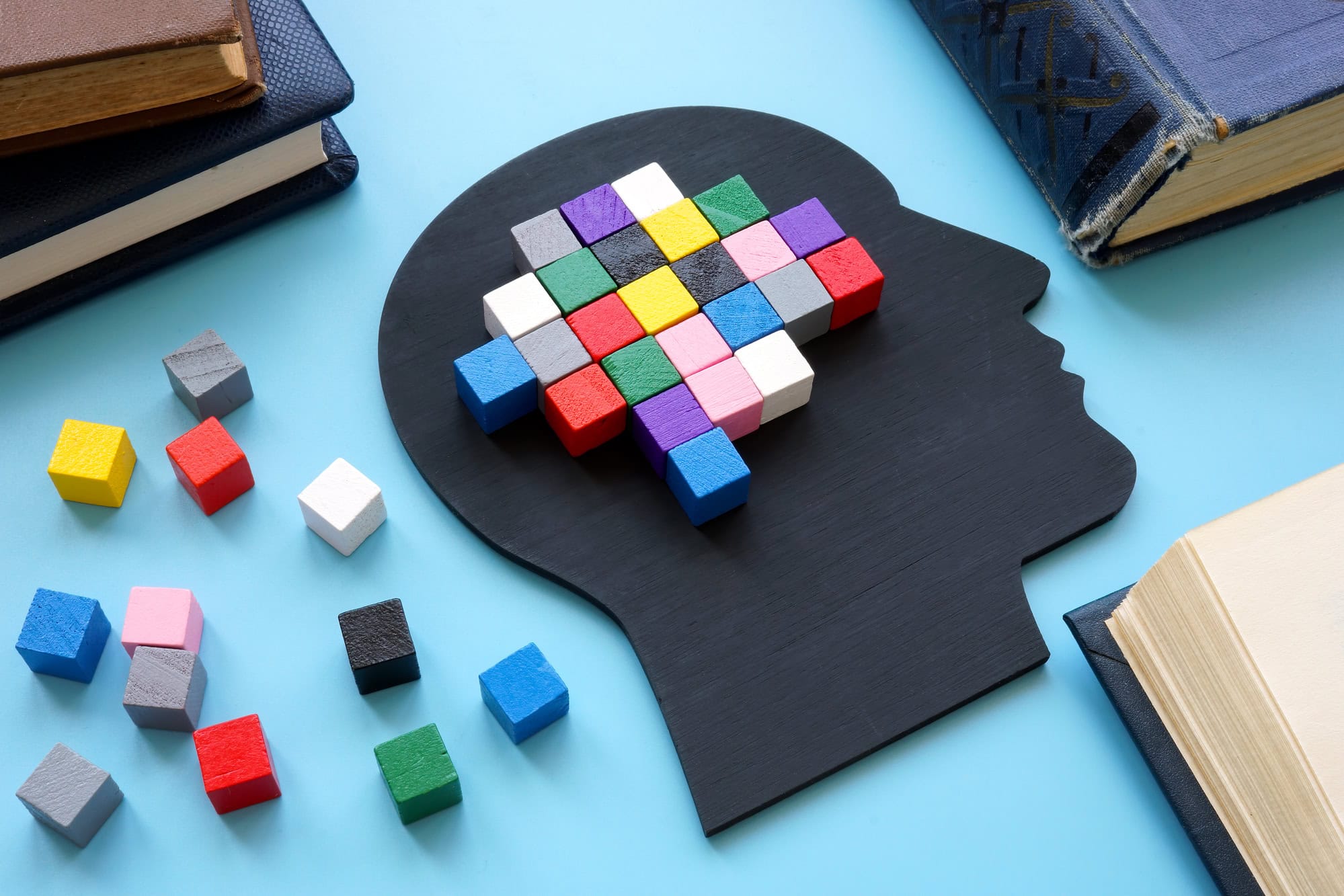
Higher Cognitive Capabilities

Active Learning and Adaptability

Digital Learning & Application

Effective Communication

Emotional & Interpersonal Management

Self-Leadership
These six meta-competencies will enable people to respond to the demands of the VUCA world. In 2023, SkillsFuture Singapore launched their report "Skills Demand for the Future Economy"⁷. Among the points emphasised is the need to learn highly transferable skills, i.e., advanced skills that enable people to apply what they learn and know in different contexts, such as different industries, job functions, working with different people, and at different job levels. It's important to recognise that these 6 meta-competencies contain highly transferable skills which can be utilised in many domains and levels of work.
Several groups of researchers in the field of VUCA studies have examined the essence of each aspect of VUCA—what makes them distinct, how they are different from each other and what each aspect "demands" from people. Synthesising the works of Bennett & Lemoine⁸ (2014), Johansen & Euhner⁹ (2013), Heinonen¹⁰ et al. (2017), and Codreanu A.¹¹ (2016), here are the behavioural descriptors of the demands of VUCA:Behavioural Descriptors of the VUCA Demands
Volatility
demands the ability to regulate our emotions, gather pertinent information and quickly come up with appropriate plans to respond to the situation.
Uncertainty
demands the ability to gather and organise strategic information into an executable and "updateable" plan.
The key is collaborating with others to obtain different and new perspectives—to address "blind spots."
Complexity
demands the ability to actively research new information in multiple fields, cataloguing them, identifying patterns and synthesising them into actionable insights.
This often involves consulting specialists in different fields and "connecting the dots."
Ambiguity
demands exercising our ability to "experiment," i.e., generating hypotheses and testing them.
The key is to develop "good enough" plans and act on them to gather intelligence. Having situational intelligence, i.e., heightened senses to capture information—is important.
Taking one example from the "VUCA Demands", in Volatile situations having the meta-competencies of "Emotional Management," "Higher Cognitive Capabilities," and "Active Learning & Adaptability" would enable people to respond effectively. We can connect the same relevance for all the other VUCA situations.
Developing VUCA-Fit Skills & Competencies
In a rapidly changing and chaotic (external) world, we asked ourselves at Mind Transformations, "What kind of nervous system (internal world) is required to thrive in VUCA?" In answering this question, our research has drawn vital information from work competencies researchers and experts in the field of VUCA. This useful information, however, needs to be translated into a language that our nervous system can assimilate and execute.
This is where NLP plays a strategically relevant and impactful role in managing VUCA. NLP, in its essence, has a deep understanding of how the human nervous system produces ineffective and effective behaviours.
An important strength in NLP is turning a named skill (e.g., the ability to collaborate with people) into mental, verbal, emotional and behavioural processes. Without it, knowing an important skill remains a "string of words" which may seem profound but not produce desired behaviours.
Traditionally, the notion of "knowing" is pegged to something that resides in the head (brain). Latest findings in neuroscience confirms that there are at least three brains¹² in our nervous system: cephalic, cardiac, and enteric brains—each with its unique way of knowing and responding to situations. If we consider intelligence as a form of knowing how to sense and respond to situations, then we can say that there are at least three forms of intelligence: mental, emotional, and physical intelligence.
The concept of multiple intelligence¹³ (Gardner H., 1987) has been advocated and utilised by Mind Transformations since 2014. Among the many practical insights that MT has gained from integrating multiple intelligence into NLP is that intelligence is not just in the head (IQ); instead, a more powerful performance is possible when we integrate our emotional (EQ), physical (PQ) and spiritual intelligence (SQ). SQ is defined as our ability to expand our connection to larger systems (our life, society, planet, and cosmos) to find and mobilise our gifts, contributions, and purpose in life.
The six meta-competencies are scoped and articulated at an abstract level, far detached from our behaviour and too complex for our nervous system to execute. As mentioned earlier, unless we can connect and translate them using a language our nervous system can assimilate and execute, they remain head knowledge that cannot produce desired behaviours.
That "needed language" is NLP. In Mind Transformations' case, Multi-Intelligence NLP¹⁴. We make the meta-competencies learnable by translating them into the language of multiple intelligence, and into "Neuro-Actionables," i.e., a language that our nervous system can understand and execute desired behaviours – at the right time and place.
Using a cognitive, affective and somatic approach, Mind Transformations has developed a set of identifiable, learnable, and trackable Meta-Skills (aka Future-Fit Skills):
Multi-Intelligence Meta-Skills enabling individuals to raise their Meta-Competencies
Header | IQ | EQ | PQ | SQ |
|---|---|---|---|---|
1. Ability to correlate, integrate, & utilise different sets of data. | X | Cell | Cell | Cell |
2. Ability to frame an outcome, visualise the plan & adapt it as I go. | X | Cell | Cell | Cell |
3. Ability to scope information & communicate optimally. | X | Cell | Cell | Cell |
4. Ability to ask useful questions, & conversationally lead others. | X | X | Cell | Cell |
5. Ability to summon and hold desired emotions. | Cell | X | Cell | Cell |
6. Ability to pick up and respond to the emotions of others. | Cell | X | Cell | Cell |
7. Ability to build rapport and vary my approach with different personalities. | X | X | Cell | Cell |
8. Ability to adopt multiple perspectives & utilise the insights. | X | X | Cell | Cell |
9. Ability to collaborate in a group to develop a win-win outcome. | X | X | Cell | Cell |
10. Ability to quickly learn a new approach, apply and adapt it. | X | Cell | X | Cell |
11. Ability to identify useful learning in new situations and use it elsewhere. | X | Cell | X | Cell |
12. Ability to direct my body & senses to respond to unfamiliar situations. | Cell | X | X | Cell |
13. Ability to raise my resilience and self-trust. | Cell | X | X | Cell |
14. Ability to maintain a mindfulness practice & stretch myself to grow. | Cell | Cell | Cell | X |
15. Ability to observe & challenge my assumptions about people & situations. | Cell | Cell | Cell | X |
At the Master Practitioner level, learners expand on the 10 Future-Fit skills at the Practitioner level. These Meta-Skills contain several micro-skills, and we will elaborate more on them during the course. To be clear, the NLP courses in Mind Transformations are not designed to fulfil the six meta-competencies fully but to empower learners to improve significant aspects during the course.
The Multi-Intelligence NLP Master Practitioner Course (2024) is designed to help participants master the above Meta-Skills, which in turn enables the participant to hone key aspects of Higher Cognitive Capabilities, Active Learning & Adaptability, Effective Communication, Emotional Management & Interpersonal Management, and Self-Leadership. Even though Digital Learning & Application is not addressed in this course, expanding the Meta-Skills of Higher Cognitive Capabilities, Active Learning & Adaptability, and Self-Leadership would support the learner in improving this meta-competency.
This course is considered a "Paradigm-Shift" by many graduates.
By lifting their map of the world out of the water, the course empowers learners to see the ocean they swim in—to understand the waves and undercurrent that pushes and pulls their daily thoughts and actions. Understanding these invisible forces comes in the form of understanding our external world (VUCA factors) and our internal world—i.e., the assumptions and beliefs that dictate how we see problems and solutions. Though we have packed the course with practical frameworks and applications, much of the programme focuses on identifying and transforming the "boxes" we are in.
Why a paradigm shift?
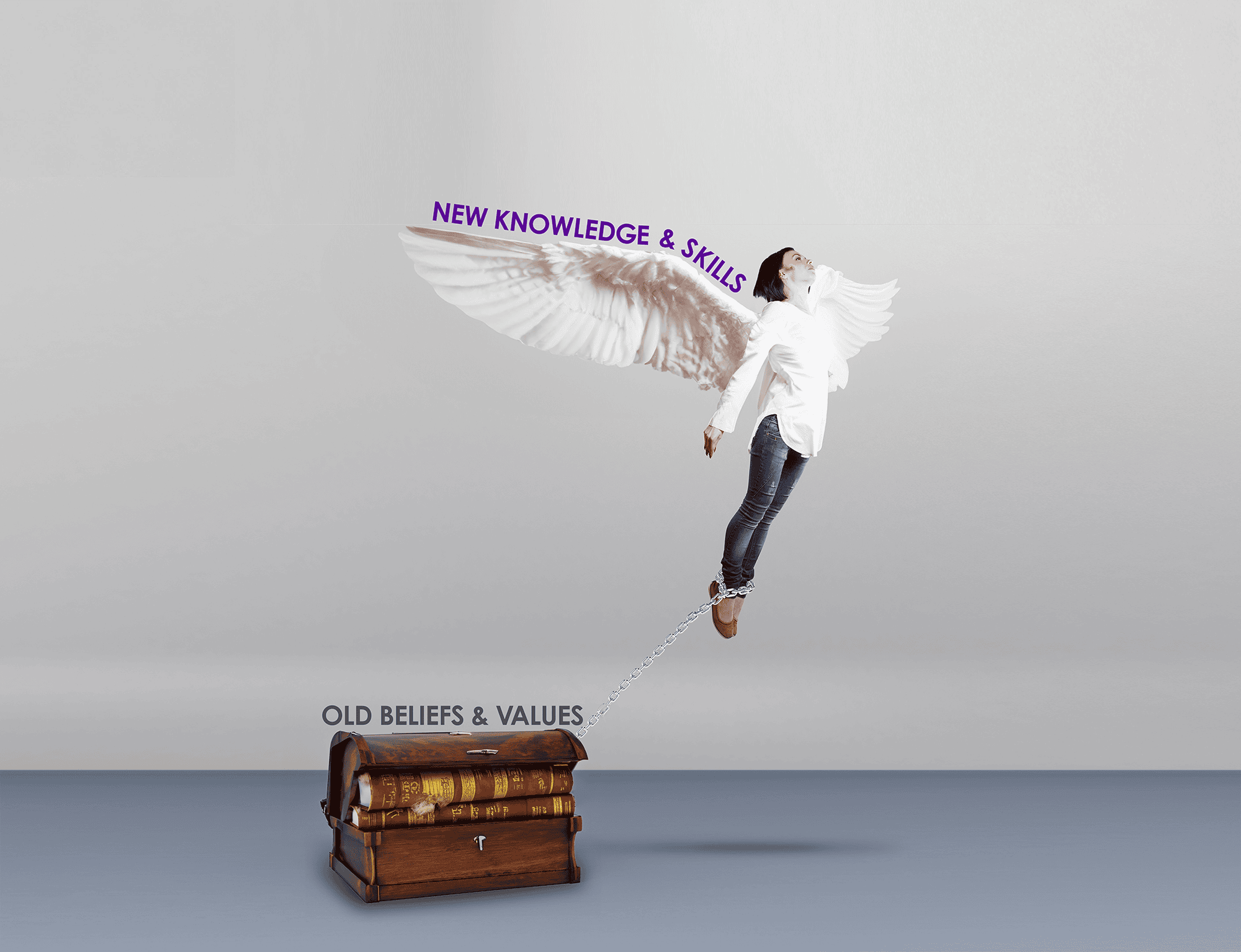
As more people move quickly from the early to the later stages of the fourth industrial revolution (with AI taking centre stage), many governments are urging their workforce to upskill and reskill themselves. However, many focus on learning new knowledge and skills; without changing their "old box of beliefs and values," they are limited in their capacity to utilise what they have learnt. We have seen people who have attended:
It is easy to say we need to change our mindset, but unless a framework, process and support structure is put in place, it's difficult for people to "see their own box", let alone try to get out of it.
In the 2024 release of the Multi-Intelligence NLP Master Practitioner Course, we will take bold, structured, but malleable steps with you into the eye of the VUCA hurricane. The programme aims to empower you with VUCA-Fit frameworks and processes:
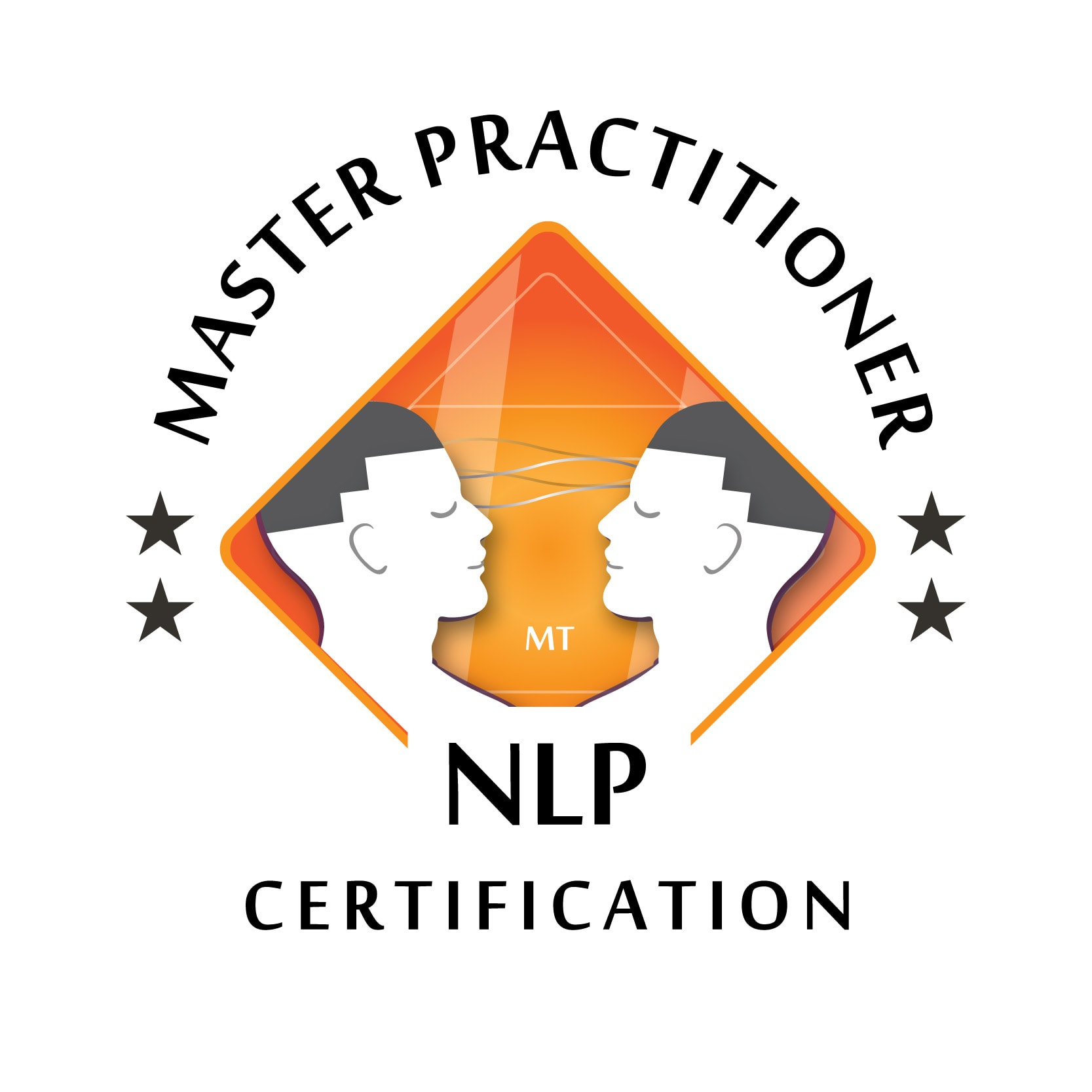
Indicate your interest in or request a consultation for the NLP Master Practioner course.
References:
1) For more details on how these multi-systems (climate, geopolitics, acceleration in AI, biological (pandemics) and a seismic shift in human values) impact our lives: https://bit.ly/48Lpt7y
2) What VUCA really means for you, Bennett & Lemoine https://hbr.org/2014/01/what-vuca-really-means-for-you
3) Pushing the limits of neural capacity https://bit.ly/3TZEIVY; Scientists make brain tissue indestructible https://bit.ly/3HnDYCz
4) The Top 10 Skills in 2025 by Kate Whiting, World Economic Forum https://bit.ly/48YO5t9
5) Defining the Skills Citizens Need in the Future of Work by Marco Dondi et al., McKinsey & Company https://mck.co/3S8pb3B
6) Critical Core Skills for the Future Economy by SkillsFuture Singapore https://bit.ly/3O6VE92.
7) Skills Demand for the Future Economy, SkillsFuture 2023, https://www.skillsfuture.gov.sg/docs/default-source/skills-report-2023/sdfe-2023.pdf
8) Bennett & Lemoine (2014), Understanding threats to performance in a VUCA world https://bit.ly/3Hrr4Dp
9) Johansen & Euhner (2013), Navigating the VUCA world, https://www.tandfonline.com/doi/abs/10.5437/08956308X5601003
10) Heinonen et al. (2017), Surprise as the new normal, https://eujournalfuturesresearch.springeropen.com/articles/10.1007/s40309-017-0117-5
11) Codreanu A. (2016), A VUCA framework for a VUCA environment. Leadership challenges and solutions, https://bit.ly/3Ob6ECu
12) The 3 brains that control our intuition https://invisible-edgellc.com/head-heart-gut/
13) Gardner's Theory of Multiple Intelligence https://www.simplypsychology.org/multiple-intelligences.html
14) To have a general idea of the NLP Multi-Intelligence skills: https://bit.ly/3ObvdPz


